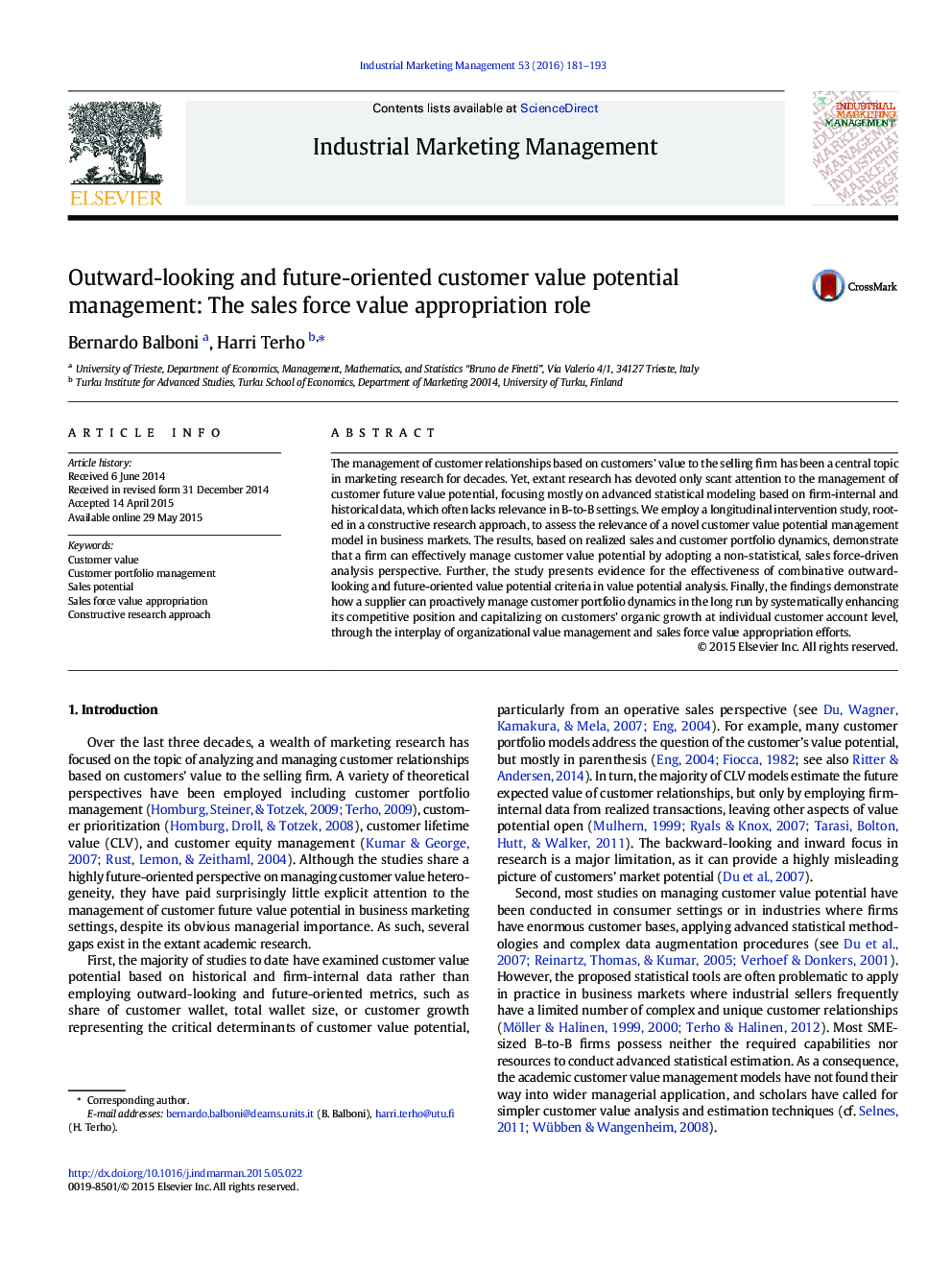| Article ID | Journal | Published Year | Pages | File Type |
|---|---|---|---|---|
| 1027365 | Industrial Marketing Management | 2016 | 13 Pages |
•The majority of studies to date have examined customer value potential based on historical and firm-internal data.•This study proposes a novel customer value potential segmentation model based on outward- and forward-looking metrics.•We apply a constructive research approach to assess the relevance of the developed tool in business markets.•A sales force-driven estimation enables an effective and cost-efficient alternative to manage customer value potential.•The study provides rare empirical evidence how a supplier can proactively manage customer portfolio dynamics in the long run.
The management of customer relationships based on customers’ value to the selling firm has been a central topic in marketing research for decades. Yet, extant research has devoted only scant attention to the management of customer future value potential, focusing mostly on advanced statistical modeling based on firm-internal and historical data, which often lacks relevance in B-to-B settings. We employ a longitudinal intervention study, rooted in a constructive research approach, to assess the relevance of a novel customer value potential management model in business markets. The results, based on realized sales and customer portfolio dynamics, demonstrate that a firm can effectively manage customer value potential by adopting a non-statistical, sales force-driven analysis perspective. Further, the study presents evidence for the effectiveness of combinative outward-looking and future-oriented value potential criteria in value potential analysis. Finally, the findings demonstrate how a supplier can proactively manage customer portfolio dynamics in the long run by systematically enhancing its competitive position and capitalizing on customers’ organic growth at individual customer account level, through the interplay of organizational value management and sales force value appropriation efforts.
